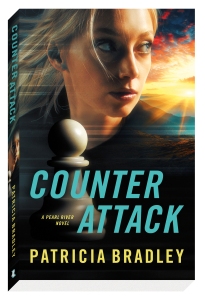Julie’s Note:
This is a revised post from my new Substack. Substack is part blog, part newsletter.
I write once a week on surrender issues with chocolate mentions.
Always with encouragement, never preachy.
Consistently authentic.
I’d love for you to subscribe for free as it is delivered to your inbox.
Click on the Top Posts Image to Check it out and Subscribe. Thanks!
***
I remember driving my car, dog in tow, as part of a caravan leaving Upstate NY for the Ohio/PA border. I was thirty-four and except for college, that area had been my home. It’s all I knew. My reality was a move to Ohio for my husband’s job.
Oh, and everyone I knew lived in Upstate NY too. Including my recently widowed mother and my grieving sister. The loss was so brutal, followed up with my moving that my mother approached my husband and begged him to take a job at McDonald’s just so we could be local. “If you move, it will be like another death to me.”
Yeah.
Driving those 300 miles, I asked why a lot. Why would I leave everyone and everything that was good for a place I knew no one and nothing?
This year will be the twentieth anniversary of that move. It didn’t take long to see why that move needed to happen. Our daughter, a baby at the time, was quite sick. She received amazing care that was close by. Our son made friends because he was in a classroom versus the homeschooling I had done in NY. Had we stayed, even switching to a school would have put him in a rural district with very few kids to play with. My husband found his niche immediately at the church we still call home.
Me? It took a little longer, but I remember years later seeing the visual on Facebook with the little girl and her ragged doll. Jesus was asking her to give HIm the doll. She was reluctant, asking why.
What she couldn’t see was a better doll behind his back.
When I started writing, my tagline became “Surrendering the good, the bad, and—-maybe one day—-the chocolate.”
I’m often asked about the good. Why surrender that?
The bad makes sense. Quitting smoking is a great surrender. But what if you’re minding your own business, doing great, and being kind and something comes along that requires you to let go of something good?
Before I met my husband, I was friends with a guy who others said we’d be a great match. Looking back, being Christians was the only thing we had in common. I was young and took those opinions as gospel. I was certain he had to be the one.
Well, he was not. When I found out, I remember being shocked I didn’t even cry. I was embarrassed and confused, but I wasn’t sad. It was weird but I said a prayer as I drove home. It was something like, “Hey, God, thanks. If this guy wasn’t it for me and he was good, then I know You have something even better.”
Three months later I met my husband.
Surrender is hard, and I wonder if surrendering the good is harder than the bad. It’s a big leap with no guarantees. What if you had a job and you felt that nudge to apply to the one you found out about? I’ve seen that happen. The person surrendered the good and obeyed. Turns out that good job closed down a year later. The person was at the new place, thriving.
I can’t promise you surrendering the good in your life will be easy, or a straight shot to fun and reward. I can tell you there is a purpose in it. God isn’t a cosmic joker ready to point and yell “Gotcha”. That’s not who He is. Ever.
I’ve had to surrender good enough times to know the picture with the doll is accurate. I still struggle and ask why, but I’ve never regretted being obedient.
If you’re called to surrender a good thing, take the leap of faith. God’s holding something better behind His back.
Oh, the tagline about maybe one day the chocolate? Today is not that day.
How about you? What good things has God asked you to surrender?














































































